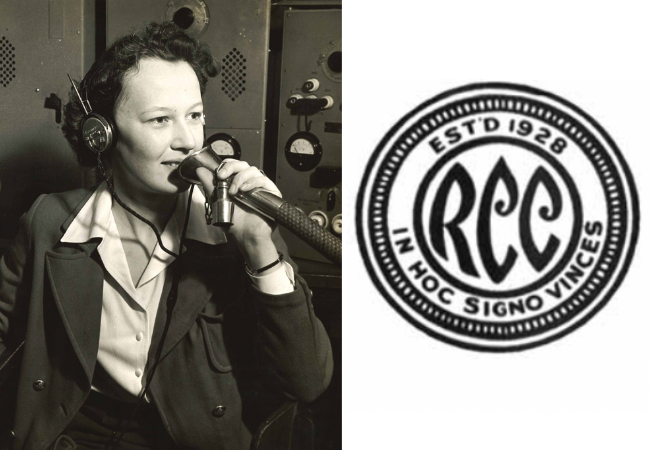
On June 13, 1941 – the same day she graduated from Radio College of Canada as the first Canadian woman to earn a Second-Class Wireless Operator’s certificate – Fern Blodgett Sunde received a phone call that would change her life.
It was her principal from RCC on the line, and he was calling with urgent news for the eager new grad: the Norwegian merchant vessel M/S Mosdale, docked in Montreal, desperately needed a radio operator.
Within hours, Sunde was on a train, determined to eschew Canadian and British regulations prohibiting women from serving aboard ships. Luckily for Sunde, Norway had no such restrictions, and she was welcomed aboard the ship by M/S Mosdale captain Gerner Sunde (her future husband), as the ship’s newest kriegsseiler – or war sailor – and the first female ever to serve as a seaborne wireless radio operator.
It was a role that would eventually earn Sunde the Norwegian War Medal for her service during the Battle of the Atlantic – another first for a woman.
Sunde’s remarkable achievements are a testament not only to her own grit and determination, but also to the calibre of training provided to her and many other young men and women at the Radio College of Canada, one of Yorkville University’s founding institutions. During the Second World War, RCC transformed itself into a vital training ground that helped supply hundreds of qualified wireless operators to support Canada’s war effort, including a groundbreaking contingent of women who shattered barriers in a field that had previously excluded them.
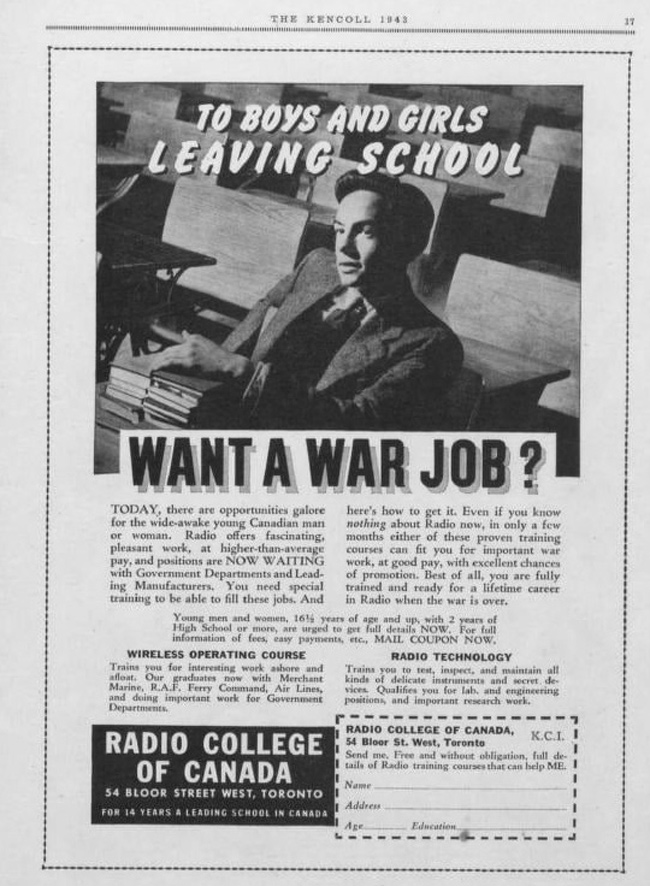
A Critical Wartime Shortage
The demand for wireless operators during the Second World War was unprecedented. Every merchant vessel crossing the Atlantic, every military ship, and countless shore stations required trained personnel capable of operating complex radio equipment under extreme conditions. These operators – known as “sparks” – were the lifelines that connected convoys, relayed distress signals, and maintained the communication networks that were essential to Allied operations.
Radio College of Canada recognized the urgency of this need for sparks and adapted its programs to meet the wartime demand. The college intensified its training schedule, condensed its curriculum where possible, and significantly expanded its capacity to produce qualified operators equipped with the necessary technical training in wireless telegraphy, radio theory, and maritime communications protocols.
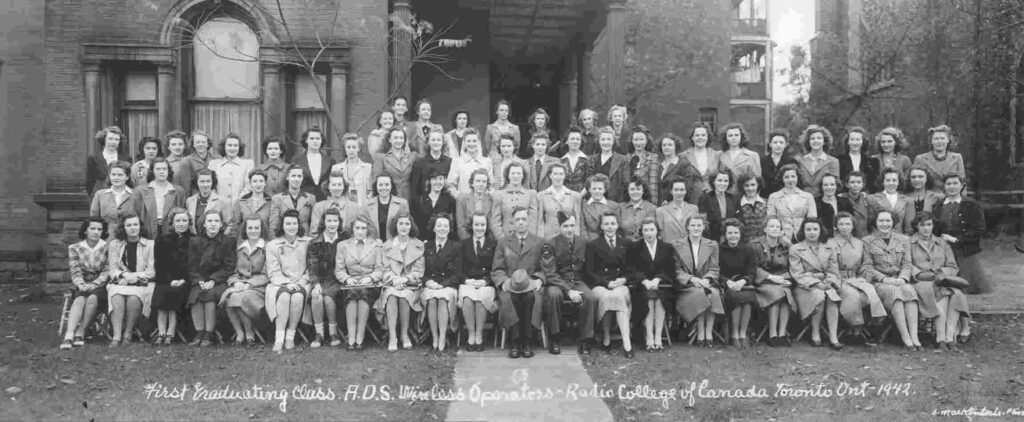
Breaking Barriers: Women Enter the Field
Perhaps RCC’s most significant contribution during this period was its decision to open its doors to women at a time when most wireless training programs remained exclusive to men.
When Sunde first began seeking wireless training in 1939, she was initially rejected by two schools whose administrators told her “they had never had a woman student and they didn’t intend to start now.” RCC’s willingness to accept Sunde – and other women – demonstrated a progressive approach that understood the war effort required every capable person regardless of gender.
But this was not just a token gesture. RCC’s female students underwent the same demanding curriculum as their male counterparts, with comprehensive training that covered everything from Morse code proficiency to the technical intricacies of radio equipment maintenance and repair.
This forward-thinking policy meant that when urgent calls came for qualified operators throughout the war years, RCC had graduates ready to serve.
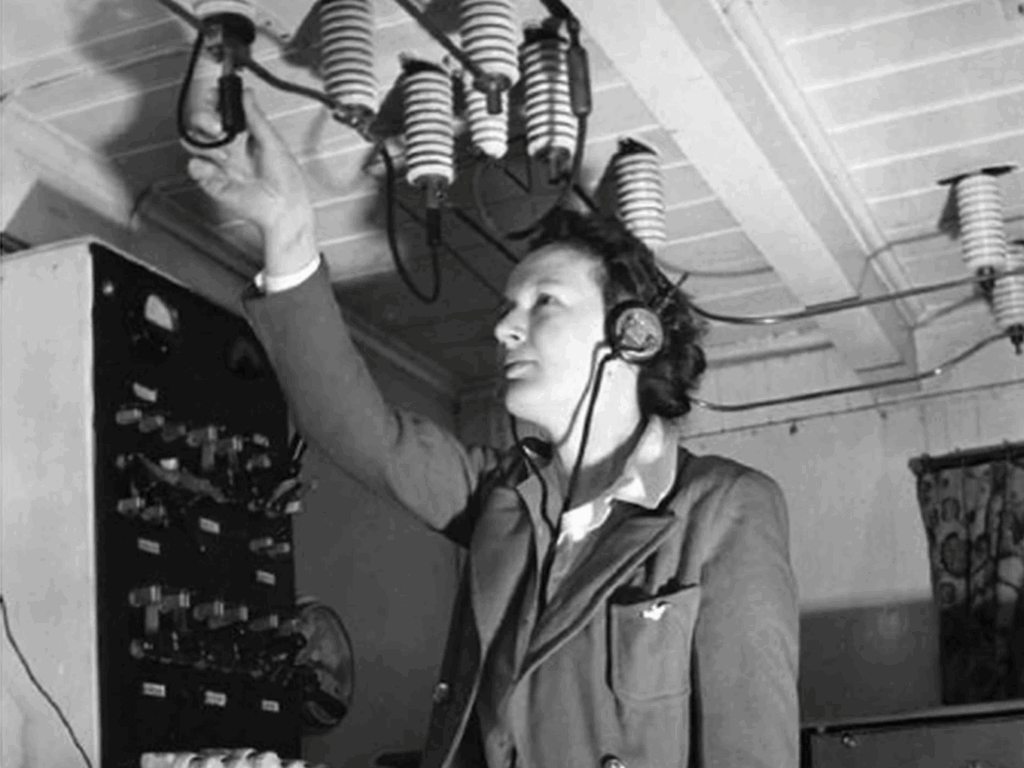
RCC Graduates in Action
The impact of RCC’s training program was far reaching. The college’s graduates served on merchant vessels running the dangerous Atlantic convoy routes, operated radio equipment at shore stations, and filled crucial communications roles throughout Canada’s war infrastructure. Many, like Sunde, found themselves directly involved in the Battle of the Atlantic, the longest continuous military campaign of the Second World War.
In such deadly environments where merchant vessels faced constant threats from German U-boats, wireless operators were not merely technical specialists – they were often the difference between survival and disaster. They maintained the vital communications that coordinated convoy movements, relayed submarine sightings, transmitted distress signals, and connected ships with shore-based command centres. The training RCC provided its graduates is what prepared them for these kinds of life-or-death situations, which they often faced during their wartime service.
Sunde’s Atlantic Star medal-winning service aboard the Mosdale – sailing with the ship on 78 of its recorded 96 transatlantic voyages – exemplified this reality.
Her achievements demonstrated that RCC’s decision to train women had not merely filled a gap, but had produced operators whose skill and courage equaled that of any graduate the college had ever trained.
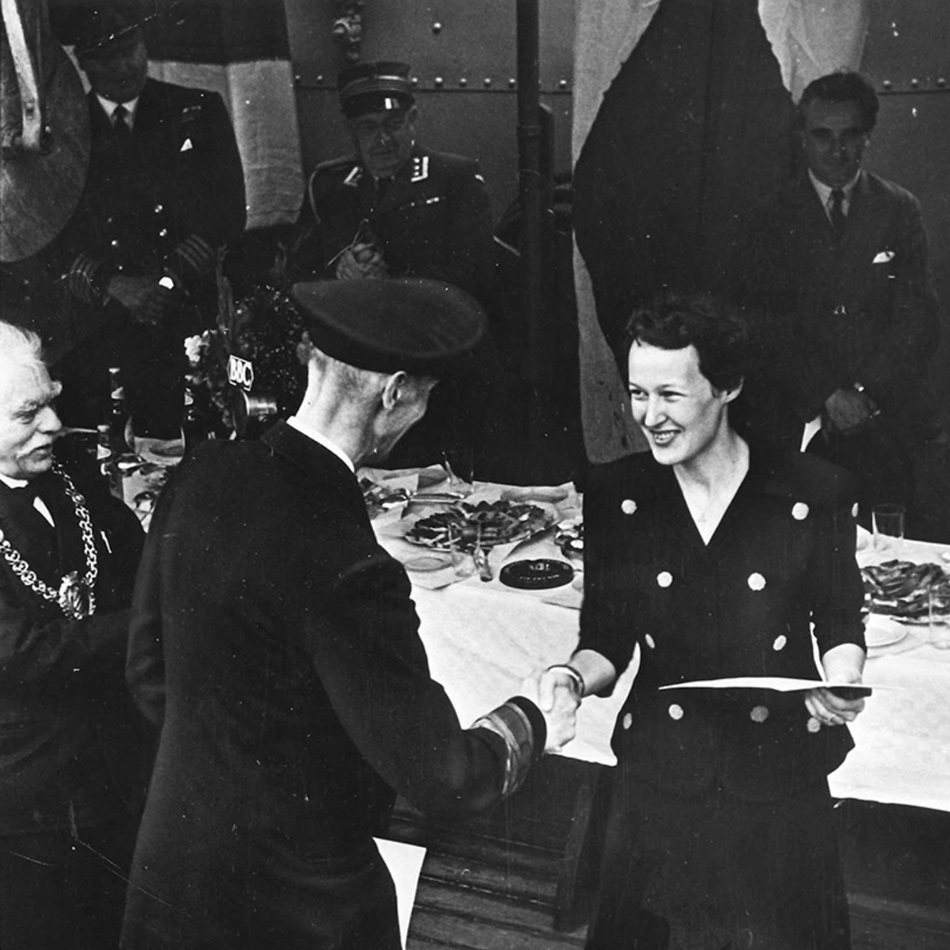
A Legacy of Service
Fern Blodgett Sunde’s story is one that never would have been written had it not been for the Radio College of Canada recognition of talent over tradition, and competence over convention.
As Yorkville University carries forward the legacy of RCC today, the wartime chapter in the schools’ shared history serves as a powerful reminder of how educational institutions can respond to national crises with innovation, inclusivity, and excellence.
RCC’s wartime training program stands as an exemplary model of education serving both individual aspiration and collective purpose – training the voices that connected a nation at war, and creating a legacy that continues to resonate today.






